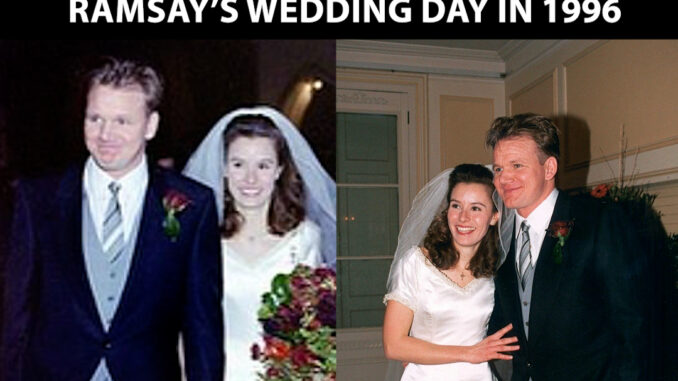
Gordon Ramsay’s ascent to television stardom began in the late 1990s, but it was the early 2000s that marked his explosive entry into global pop culture. With the debut of Hell’s Kitchen in 2005, Ramsay redefined reality TV by bringing the intensity of a professional kitchen to the screen. Behind the scenes, the show was a logistical beast, requiring meticulous planning to capture the chaos of a high-pressure restaurant environment. Producers worked tirelessly to balance authenticity with entertainment, ensuring cameras caught every burnt dish, heated argument, and triumphant plate. Ramsay’s role wasn’t just to yell or critique; he was deeply involved in shaping the show’s format, insisting on real culinary challenges that tested contestants’ skills under genuine pressure. His hands-on approach set the tone for what would become a signature style: unfiltered, demanding, and undeniably compelling.
The success of Hell’s Kitchen hinged on Ramsay’s ability to be both a mentor and a taskmaster. Off-camera, he was known to offer guidance to contestants, sharing insights from his own Michelin-starred career. Stories from the set reveal a man who, despite his on-screen intensity, cared deeply about nurturing talent. Contestants often recalled moments when Ramsay would pull them aside after a tough service, offering constructive feedback or a rare word of encouragement. This duality—fierce critic and passionate teacher—became the backbone of his TV persona, making viewers root for both him and the contestants. Behind the scenes, producers leaned into this dynamic, carefully editing episodes to highlight Ramsay’s larger-than-life presence while showcasing the human stakes of each competitor’s journey.

Following Hell’s Kitchen, Ramsay expanded his TV empire with Kitchen Nightmares (2007), a show that took him into struggling restaurants across the UK and US. The behind-the-scenes challenges here were immense. Each episode required Ramsay and his team to diagnose a restaurant’s issues—be it poor management, subpar food, or dysfunctional staff—in just a few days. Off-camera, Ramsay worked closely with producers to scout locations, often visiting restaurants incognito before filming began. His ability to identify a business’s flaws within hours was a testament to his expertise, but it wasn’t without tension. Some restaurant owners resisted his blunt advice, leading to heated exchanges that weren’t always fully aired. Yet, these moments fueled the show’s addictive drama, with Ramsay’s commitment to saving businesses shining through.
MasterChef, launched in 2010, marked another milestone in Ramsay’s TV career. Unlike Hell’s Kitchen, which focused on professional chefs, MasterChef celebrated home cooks, bringing a fresh dynamic to his repertoire. Behind the scenes, the show required a delicate balance of nurturing amateur talent while maintaining high culinary standards. Ramsay, alongside co-judges like Joe Bastianich and Aarón Sánchez, spent hours mentoring contestants, often staying late to discuss techniques or offer encouragement. The casting process was rigorous, with producers scouring the country for diverse, charismatic cooks who could handle the pressure of national TV. Ramsay’s involvement in casting ensured that contestants weren’t just skilled but also had stories that resonated with viewers, adding emotional depth to the competition.
One of the lesser-known aspects of Ramsay’s TV success is his ability to adapt to different markets. Shows like MasterChef Australia and Hell’s Kitchen UK required him to tailor his approach to local audiences while maintaining his signature intensity. Behind the scenes, this meant collaborating with international production teams to navigate cultural nuances. For instance, Australian audiences responded to a slightly softer Ramsay, who leaned into humor and camaraderie, while American viewers embraced his tougher, no-nonsense style. These adaptations weren’t accidental; Ramsay and his team spent hours studying audience feedback and ratings to refine each show’s tone. This global perspective helped cement his status as a worldwide TV icon.
